Key Takeaways
– Acupuncture is a natural, holistic approach to treating acne by addressing inflammation, hormonal imbalances, digestive issues, and stress.
– It can bring various benefits, including improved mood, sleep, and energy.
– It may not be an overnight solution, but working with a licensed practitioner and implementing a comprehensive wellness plan can make a significant difference over time.
Alternative treatments have gained significant popularity as more people look for natural and holistic approaches to skincare. Among these options, acupuncture for acne has arisen as a safe alternative for those who want to treat breakouts without relying on traditional medications.
Acupuncture, rooted in Traditional Chinese Medicine (TCM), focuses on renewing balance in the body. It reduces inflammation, regulates hormones, and improves skin health from the inside out. This ancient practice is now being reconsidered as a modern remedy for one of the most common skin conditions: acne.
How Does Acupuncture Work for Acne?
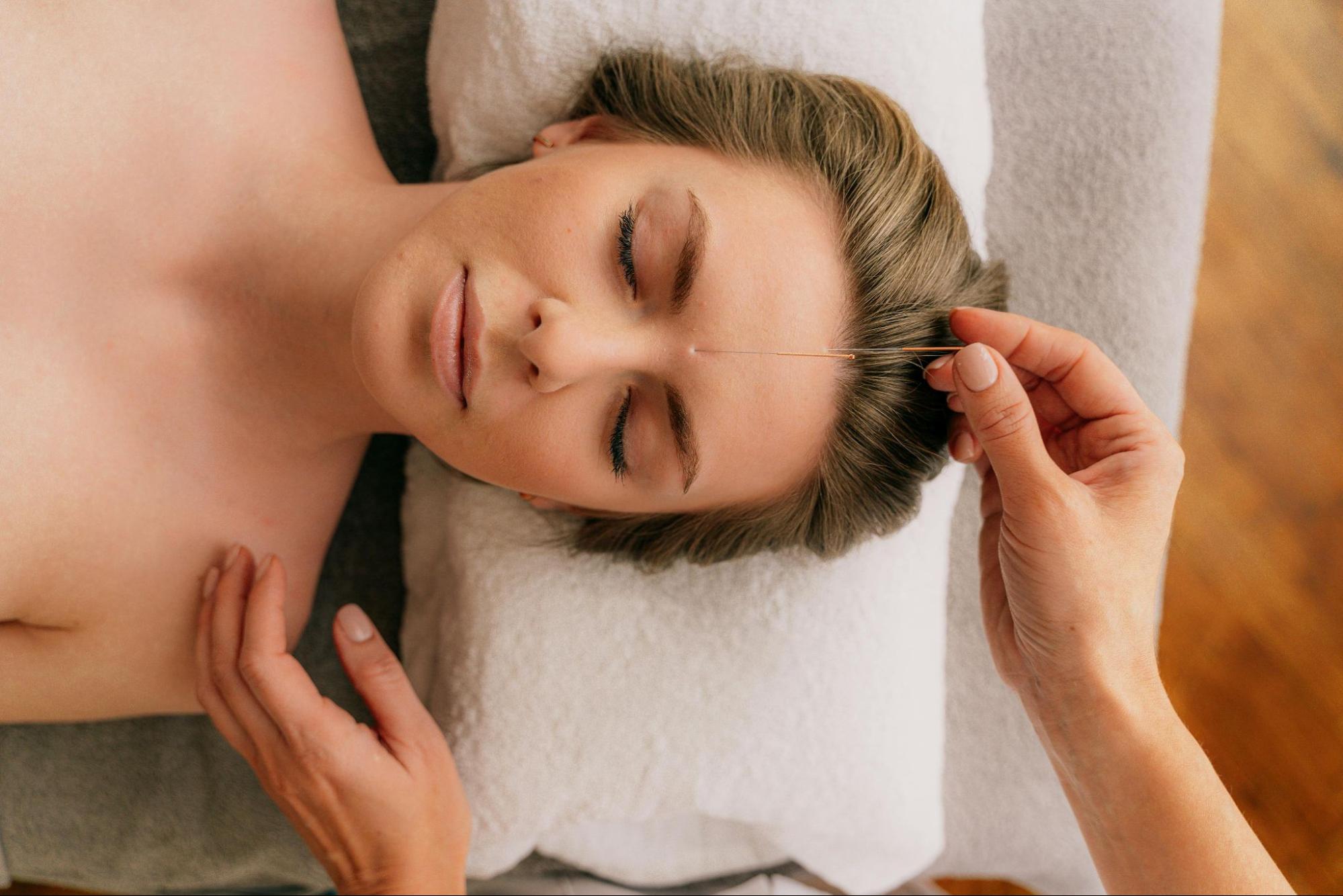
In Traditional Chinese Medicine (TCM), it is believed that acne is caused by too much heat or trapped moisture in the skin (called “dampness”) and blocked energy (called qi) in the body. These issues can affect organs such as the liver, lungs, and stomach, which are closely connected to skin health. When these organs are out of balance, the body can produce more oil, become inflamed, and experience breakouts.
In acupuncture, thin needles are placed on specific points of the body to help energy (qi) flow more smoothly. This allows the body to cool down its internal heat, dry up dampness, and restore balance. When needles are put in the right spots, they increase blood flow and send signals to the brain that calm inflammation and support hormone balance. That’s how acupuncture reduces acne naturally and from the inside out.
Recent studies show that acupuncture reduces the psychological stress related to acne, which can affect flare-ups. Additionally, it can positively influence hormone and immune responses.
Benefits of Acupuncture for Acne
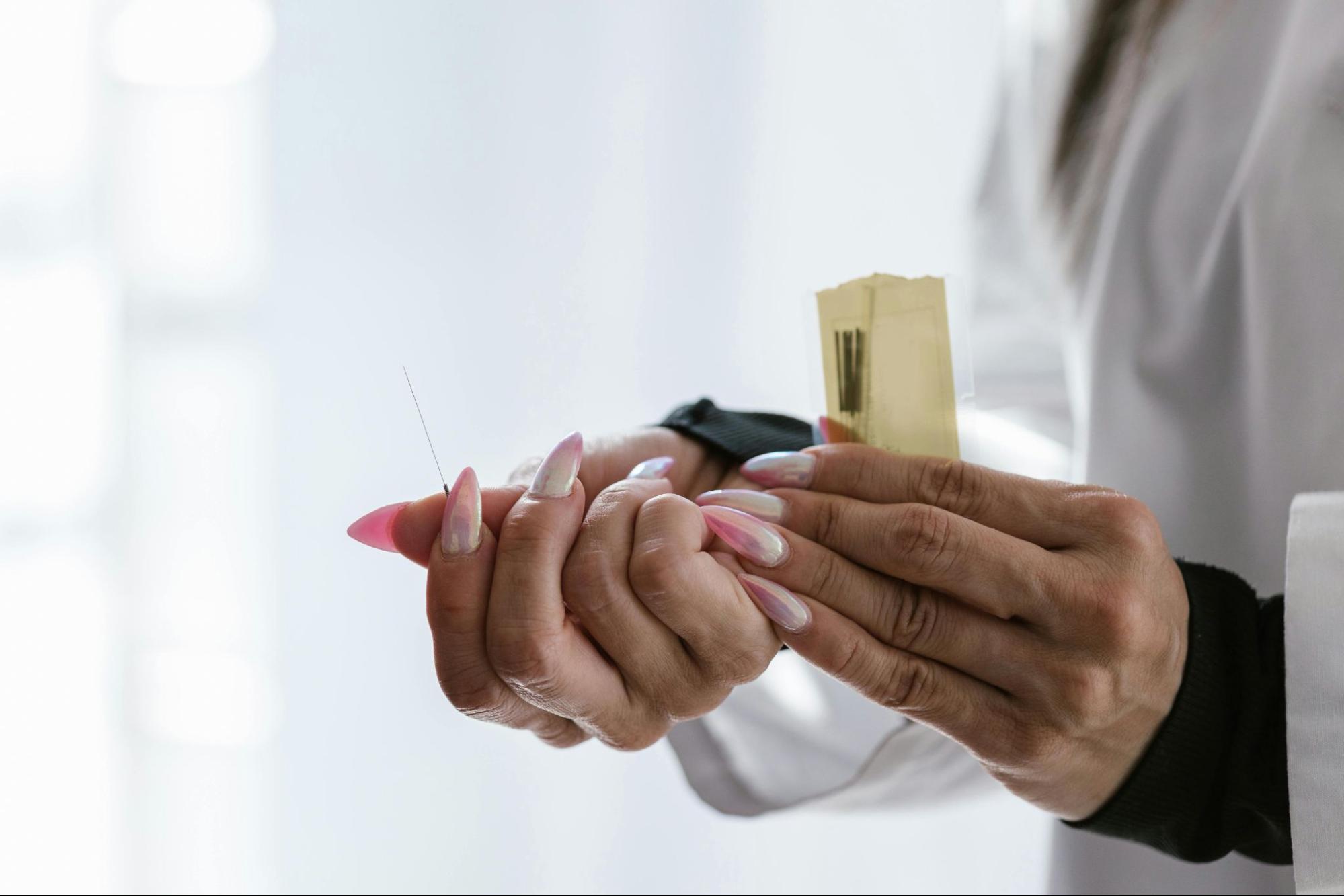
Acupuncture has been gaining popularity as a natural method for improving skin health and supporting the body’s internal balance. Many people notice clearer skin after acupuncture sessions, and a good acupuncturist can adjust treatments to address the root causes of acne.
In Traditional Chinese Medicine, acne is often linked to qi stagnation, hormonal imbalances, and inflammation—issues that acupuncture aims to improve. Acupuncture also provides several holistic benefits that go beyond treating acne.
Key benefits of acupuncture for acne include:
– Reducing inflammation and redness through targeted acupuncture points
– Regulating hormones, especially in cases of stress- or cycle-related acne
– Improving circulation along acupuncture meridians to nurture the skin
– Releasing of qi stagnation to support detoxification and decrease internal heat
– Relieving stress to prevent stress-related breakouts
– Improving mood and emotional balance
– Stimulating digestion by addressing stomach and liver meridians
– Supporting sleep, energy, and long-term wellness through acupuncture for anxiety
What to Expect During an Acupuncture Session for Acne
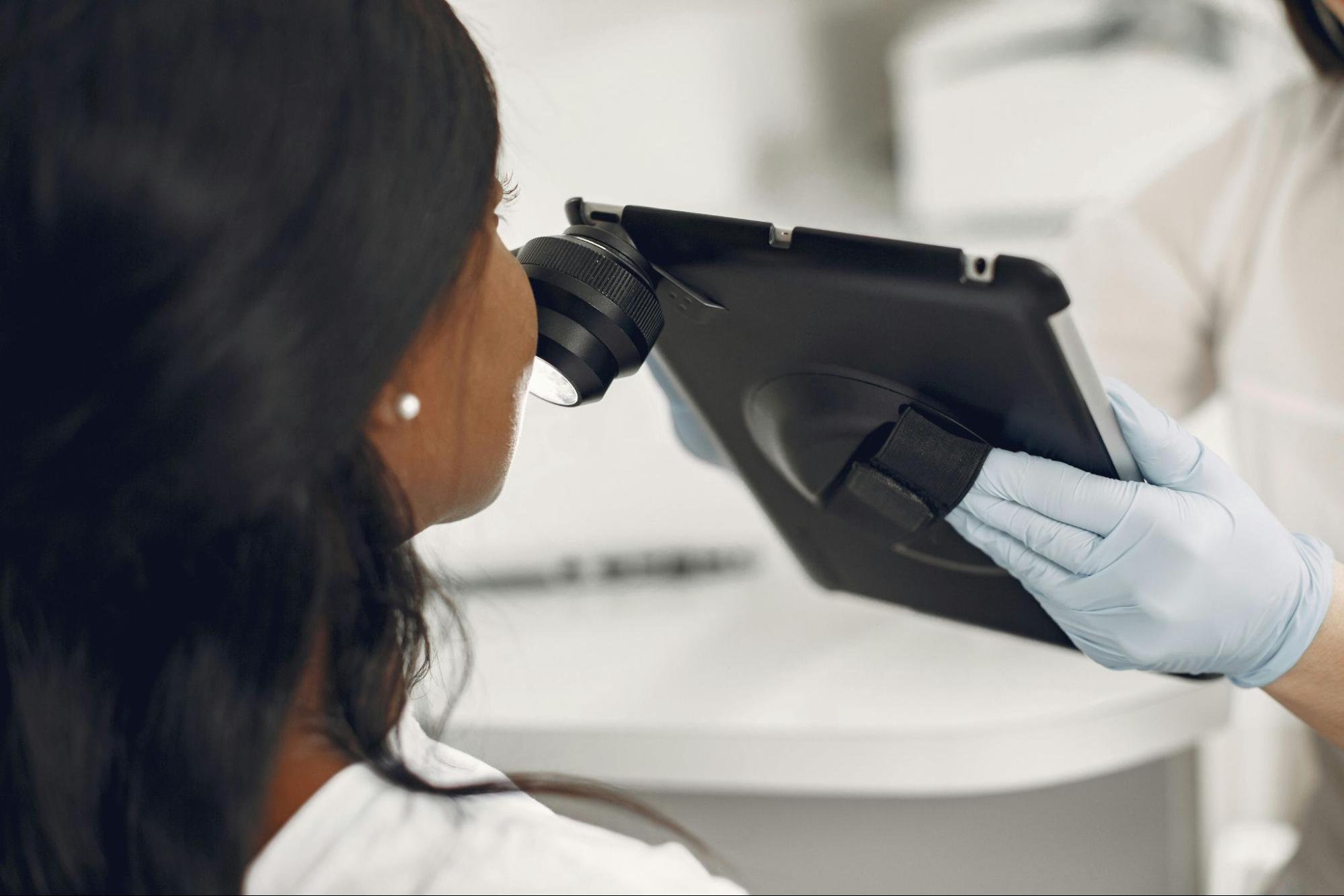
Acupuncture is gradually becoming one of the most popular natural approaches to treating acne, especially for those who want to address the root causes. During your first consultation, the acupuncturist will ask about your overall health, diet, sleep patterns, stress levels, menstrual levels (if applicable), and details about your skin concerns. A visual skin analysis enables them to identify the type and pattern of acne, allowing them to create a personalized treatment plan.
After the consultation, the acupuncture session begins, lasting around 45 to 60 minutes. The practitioner will insert fine, sterile needles into specific areas of your body, which may include your face, ears, arms, stomach, or legs. People mostly report having experienced only a mild sensation, while others may find it calming. For about 20 to 30 minutes, you will rest with the needles in those spots.
Consistent acupuncture treatments can improve your acne severity. Practitioners suggest one or two sessions per week over the course of six to ten weeks, depending on the severity of your acne. Some people may see changes within a few sessions, while others may take longer.
It’s helpful to prepare for your acupuncture appointment by trying the following steps:
– Drinking water before and after the treatment to support detoxification
– Eating a lighter meal 1 or 2 hours before your appointment
– Avoiding heavy makeup or skincare products before the session
– Wearing loose and comfortable clothing
– Arriving early and relaxing for a few minutes beforehand
Acupuncture Points for Acne
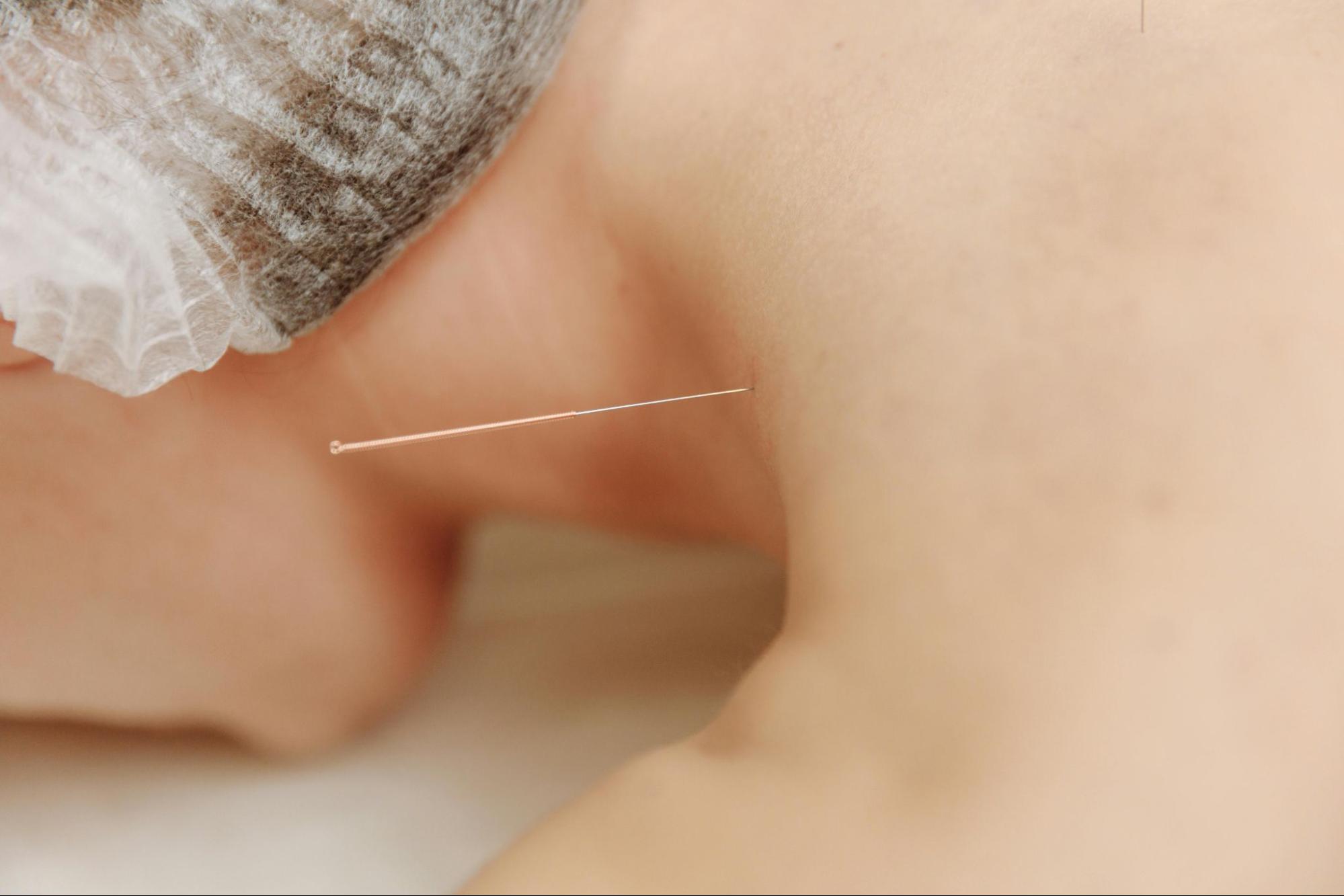
Acupuncture targets internal imbalances related to digestion, hormone regulation, detoxification, and stress to treat acne. Many commonly used points connect to the liver, spleen, and stomach, all of which are essential for skin health and emotional balance.
Common acupuncture points for acne include:
– L11 (Quchi) – this point, located in the outer elbow crease, clears heat and toxins from the blood, reducing inflammation and skin eruptions.
– ST36 (Zusanli) – found below the knee, it strengthens the digestive system and boosts immunity, focusing on acne linked to poor gut health.
– SP6 (Sanyinjiao) – located above the inner ankle, this point balances hormones and supports the spleen and liver, crucial for detoxification.
– LR3 (Taichong) – located on the top of the foot, it regulates liver Qi and relieves stress.
– GV20 (Baihui) – found at the crown of the head, it calms the mind and reduces stress-related breakouts.
– Ll4 (Hegu) – this point, between the thumb and index finger, promotes circulation and reduces inflammation.
Risks, Limitations, and Side Effects
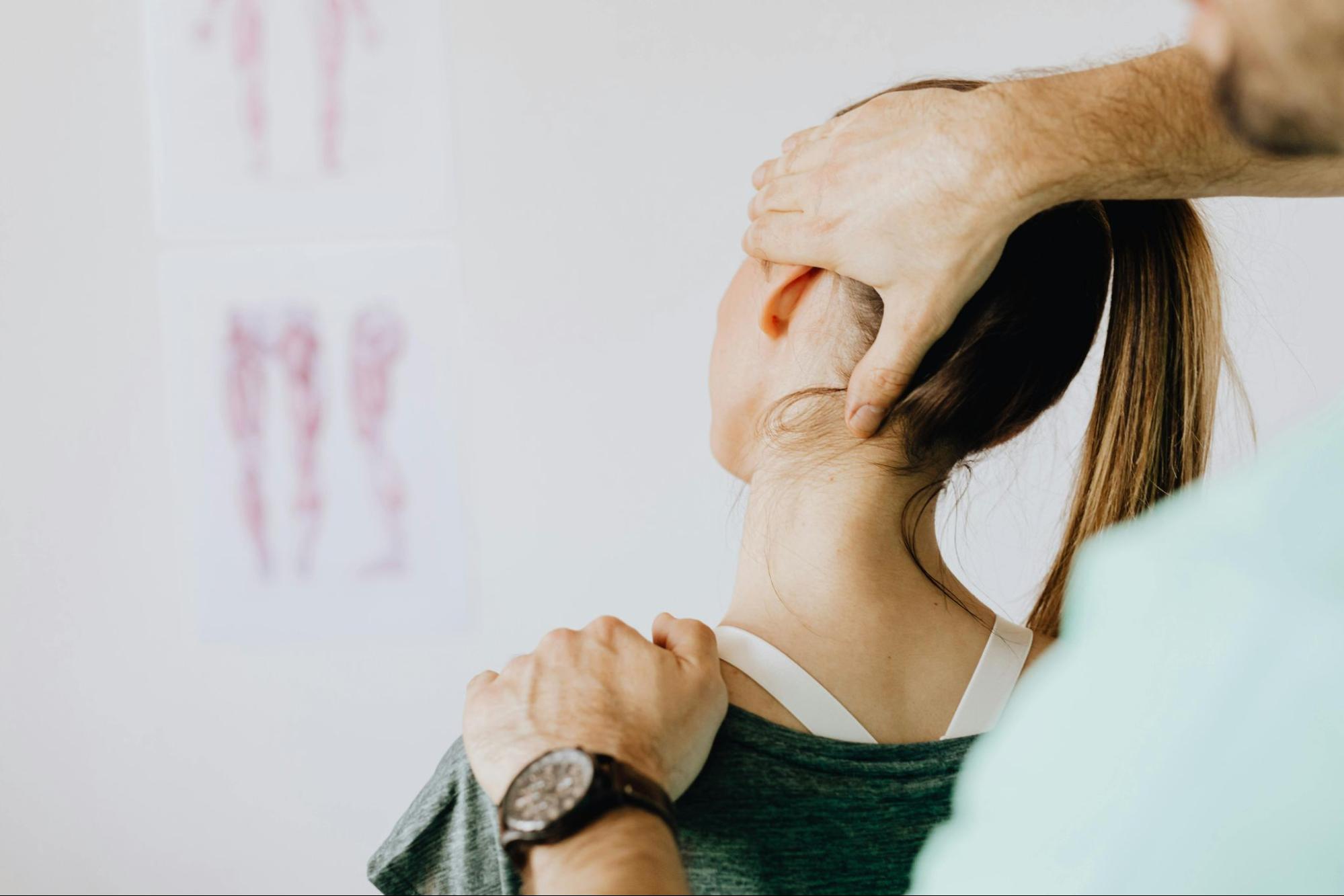
Acupuncture is considered a safe and effective approach, especially when performed by a licensed and experienced practitioner who uses sterile and single-use needles. Most individuals tolerate it easily, but as with any treatment, there are a few potential side effects to consider.
Possible side effects could include:
– Mild bruising or redness at the needle point
– Temporary soreness
– Dizziness or lightheadedness after the session
– Fatigue or feeling relaxed for a few hours after
These effects are temporary and not serious. However, acupuncture isn’t a one-time cure for acne. Results can vary depending on one’s skin conditions, underlying imbalances, and consistent treatment. It’s not a quick fix since improvements can be noticed after several weeks.
Acupuncture can have better results when it’s part of a broader wellness approach. It can be a supportive tool for healing, but it shouldn’t replace a good skincare routine, proper nutrition, or medical treatment in those cases when it’s necessary.
How to Choose the Right Acupuncturist for Acne
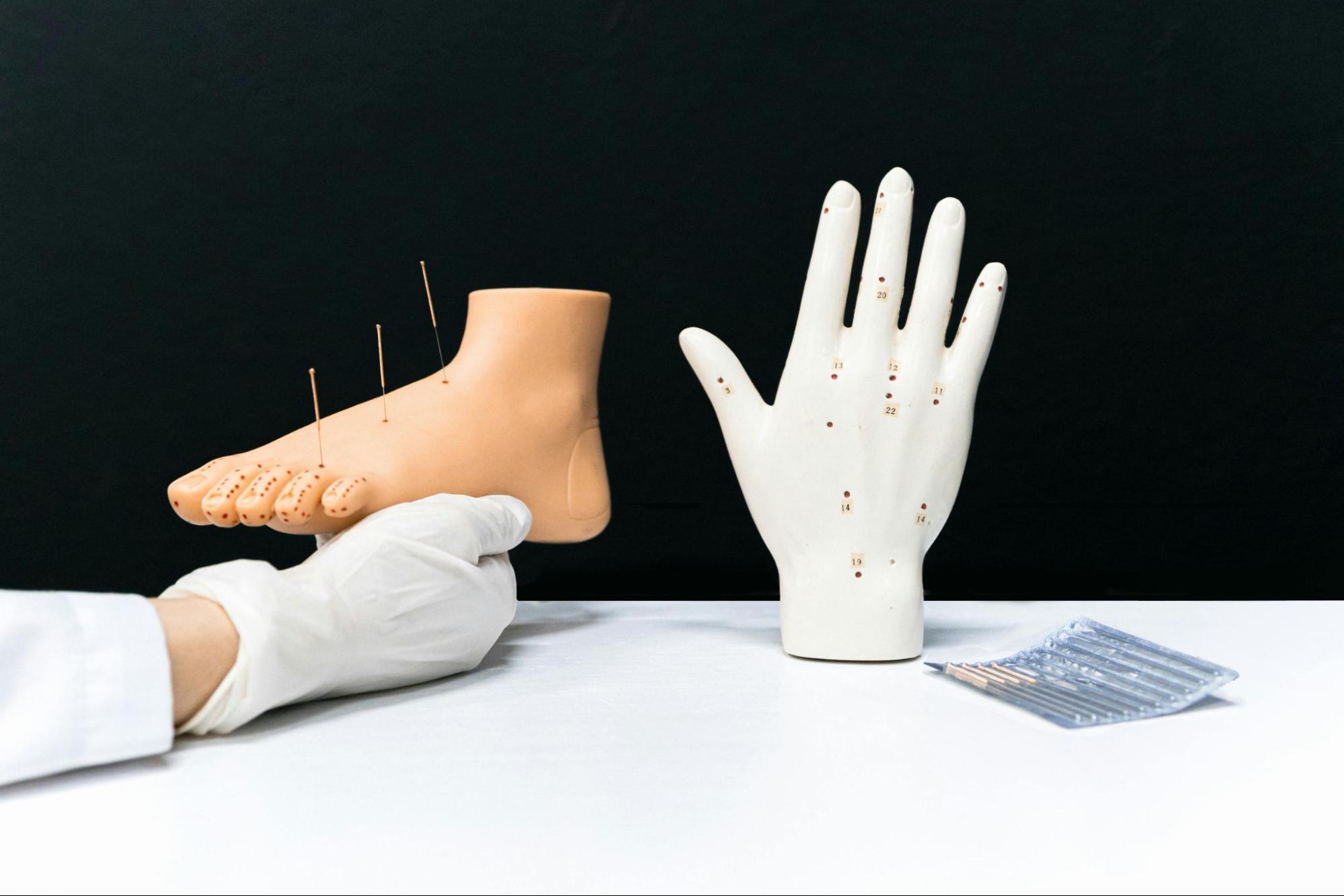
Choosing the right acupuncturist is important if you want to get the best results, especially when you’re treating something as sensitive as acne. You can start by making sure the practitioner is licensed and certified. In the U.S., look for certification from the National Certification Commission for Acupuncture and Oriental Medicine (NCCAOM). This certification verifies that the practitioner has met national standards for training and safety.
Next, check if the acupuncturist has a background in Traditional Chinese Medicine (TCM) and specific experience in treating skin conditions. Acne requires a deeper understanding of internal and external imbalances, so it’s critical to ask directly about their approach to dermatological issues. You can also check client reviews to see if others’ experiences have been good.
Comfort and safety are also essential to finding the right practitioner. On your first visit, observe their hygiene practices, whether needles are single-use and sterile, and whether treatment rooms are clean and professional. Lastly, trust your instincts. If the practitioner listens actively to your concerns, answers your questions, and makes you feel at ease, they’ll most likely be a great help.
If you want to provide this kind of comfort to people dealing with acne, you can become an acupuncturist yourself. Programs like the Acupuncture Master Degree Program at the American Institute of Alternative Medicine (AIAM) offer a well-rounded education rooted in Traditional Chinese Medicine (TCM) principles.
Over 27 months, students gain hands-on experience and in-depth knowledge to pass the national certification exams and apply for licensure. Graduates can address different health concerns, including acne, through personalized care.
Conclusion
Acupuncture offers holistic approaches to treating acne by focusing on internal imbalances that contribute to skin issues. These issues include poor digestion, hormonal imbalances, and stress. Although acupuncture is not an overnight solution, many individuals can see improvements with consistent treatment, especially when they’re guided by a licensed practitioner.
For the best results, it’s wiser to consult with a dermatologist and a certified acupuncturist to design a plan for your unique skin needs. Acupuncture can complement your existing skincare and wellness routine to promote healing from the inside out.
If you’re inspired by the benefits of acupuncture or want to become an acupuncture expert in the future, explore our programs and take advantage of all the available resources and benefits that AIAM has to offer.
Frequently Asked Questions (FAQs):
How long does it take for acupuncture to work for acne?
Results may begin to appear after 4-6 sessions, but full benefits often require consistent treatment over a few weeks.
Which organ is linked to hormonal acne in Traditional Chinese Medicine?
The liver is the most commonly linked organ to hormonal acne, alongside the spleen and kidneys.
How effective is acupuncture for treating acne breakouts?
Acupuncture can reduce inflammation, balance hormones, and improve skin clarity. However, the effectiveness of acupuncture can depend on the individual.
Can acupuncture improve the appearance of acne scars, both old and new?
Definitely! Acupuncture may stimulate collagen production and improve skin texture, which can gradually reduce the appearance of both old and new acne scars.